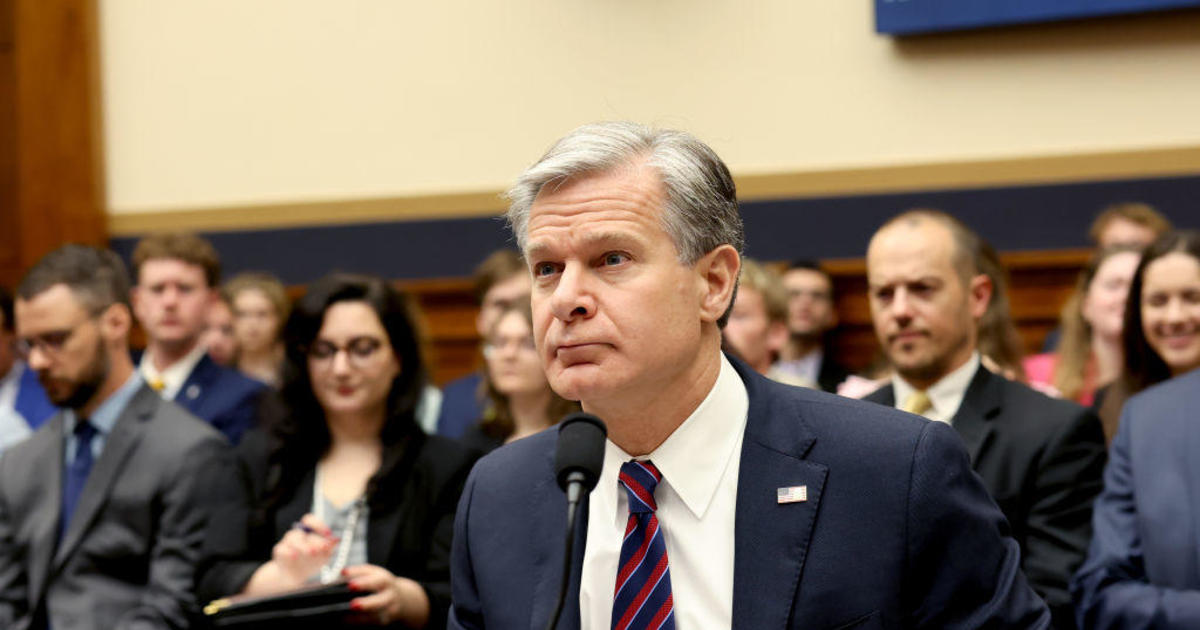FBI Director Christopher Wray faced intense questioning from House lawmakers on Wednesday regarding the attempted assassination of former President Donald Trump at a rally in Butler, Pennsylvania. The Republican-led House Judiciary Committee sought answers from Wray about the FBI’s investigation into the shooting on July 13th, which left one rally attendee dead, two critically wounded, and Trump himself injured.
In a letter to Wray, GOP Rep. Jim Jordan of Ohio, the committee’s chairman, raised concerns about the security failures that allowed the gunman to get onto a nearby rooftop and fire shots towards Trump. Jordan emphasized the need for a thorough and transparent investigation into the incident, which he described as the first attempted assassination of a president in over 40 years.
The FBI, which is treating the shooting as a potential act of domestic terrorism, has yet to determine the gunman’s motive. This lack of clarity has raised further questions about the agency’s handling of the case and its ability to prevent such incidents in the future.
The shooting at Trump’s rally prompted the resignation of Secret Service Director Kimberly Cheatle, who acknowledged significant operational failures within the agency. Cheatle testified before the House Oversight Committee, expressing a commitment to accountability but refraining from discussing specifics about the gunman’s actions leading up to the attack due to the ongoing FBI investigation.
During the House Judiciary Committee hearing, Wray faced scrutiny over the FBI’s response to the assassination attempt and its efforts to identify and apprehend the perpetrator. Lawmakers pressed Wray for details on the agency’s investigative process and its collaboration with other law enforcement agencies in the aftermath of the shooting.
Wray assured the committee that the FBI was fully dedicated to uncovering the truth behind the attack and bringing those responsible to justice. He highlighted the agency’s commitment to thoroughness and professionalism in its investigations, particularly in cases of domestic terrorism and threats to national security.
Members of the committee expressed frustration over the lack of concrete information about the gunman’s motives and background. They emphasized the need for swift and decisive action to prevent similar incidents from occurring in the future, calling on Wray to provide clarity on the FBI’s strategy for addressing domestic terrorism threats.
In response, Wray outlined the FBI’s approach to investigating acts of violence and extremism, emphasizing the importance of collaboration with other agencies and the public in identifying and thwarting potential threats. He underscored the agency’s commitment to upholding the rule of law and protecting the American people from harm.
As the hearing continued, lawmakers delved into the specifics of the FBI’s investigation into the shooting at Trump’s rally. They questioned Wray about the timeline of events leading up to the attack, the gunman’s background and possible motives, and the agency’s coordination with local law enforcement and the Secret Service in responding to the incident.
Wray provided detailed information about the FBI’s investigative process, including the collection and analysis of evidence, interviews with witnesses and suspects, and coordination with other agencies involved in the case. He assured the committee that the FBI was leaving no stone unturned in its pursuit of the truth and justice for the victims of the shooting.
Throughout the hearing, Wray remained composed and focused, fielding tough questions from lawmakers with professionalism and expertise. He reiterated the FBI’s commitment to upholding the rule of law and protecting the American people from all threats, both foreign and domestic.
As the hearing concluded, lawmakers expressed their appreciation for Wray’s testimony and his willingness to address their concerns about the FBI’s handling of the assassination attempt. They pledged to continue monitoring the agency’s investigation and hold it accountable for ensuring that such incidents do not happen again in the future.
Overall, the hearing with FBI Director Christopher Wray shed light on the complexities and challenges of investigating acts of violence and extremism in the United States. It underscored the importance of transparency, cooperation, and accountability in addressing threats to national security and upholding the safety and well-being of all Americans.









